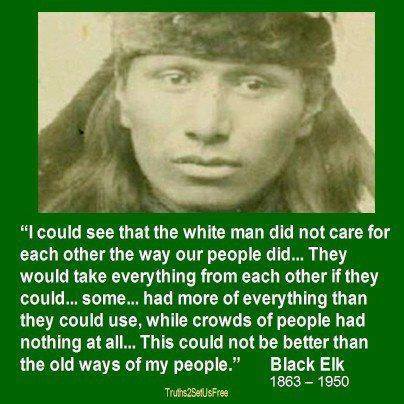A Native American’s Timeless Take On The White Man

The numbers on the clock might change, but character doesn’t.

The numbers on the clock might change, but character doesn’t.

The Article: Why America Hates Its Poor by Noam Chomsky in AlterNet.
The Text: An article that recently came out in Rolling Stone, titled “Gangster Bankers: Too Big to Jail,” by Matt Taibbi, asserts that the government is afraid to prosecute powerful bankers, such as those running HSBC. Taibbi says that there’s “an arrestable class and an unarrestable class.” What is your view on the current state of class war in the U.S.?
Well, there’s always a class war going on. The United States, to an unusual extent, is a business-run society, more so than others. The business classes are very class-conscious—they’re constantly fighting a bitter class war to improve their power and diminish opposition. Occasionally this is recognized.
Of course, only after Obamacare tries to curb the volatility and ever-rising premiums that define the private health insurance market does the private insurance market actually give a shit about rising premiums.

Meanwhile, corporate profits as percentage of GDP are at an all-time high. Think that’s just a coincidence?

The Article: The wrong people decide who goes to prison by Mark Bennett and Mark Osler in CNN.
The Text: Nearly 30 years ago, Congress embarked on a remarkable and ultimately tragic transformation of criminal law. Through the establishment of mandatory sentences and sentencing guidelines, discretion in sentencing was shifted from judges to prosecutors.
After the changes, prosecutors largely controlled sentencing because things like mandatory sentences and guideline ranges were determined by decisions they made.
This change ignored the fact that federal judges are chosen from the ranks of experienced members of the bar precisely because their long legal careers have shown the ability to exercise discretion.